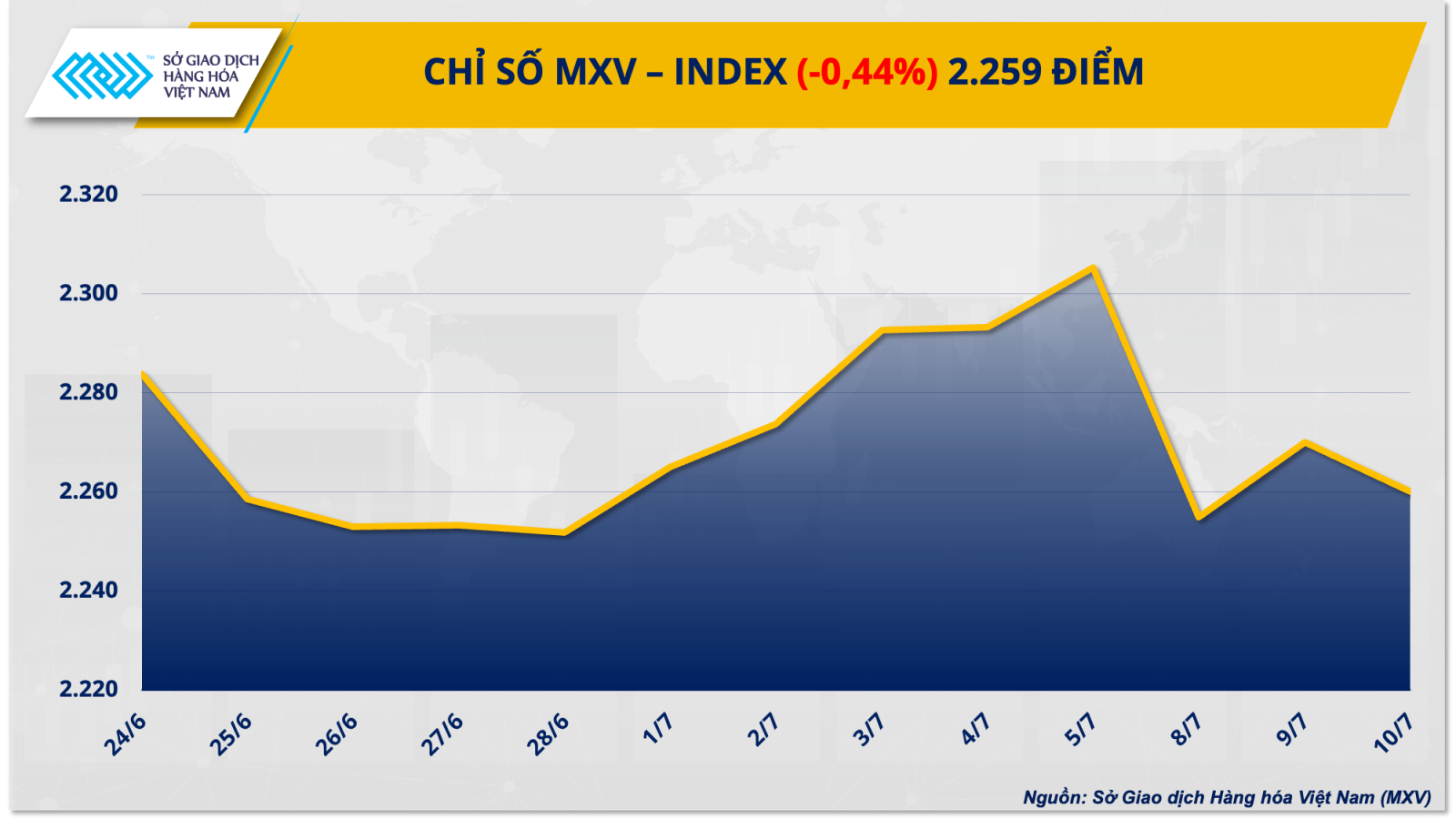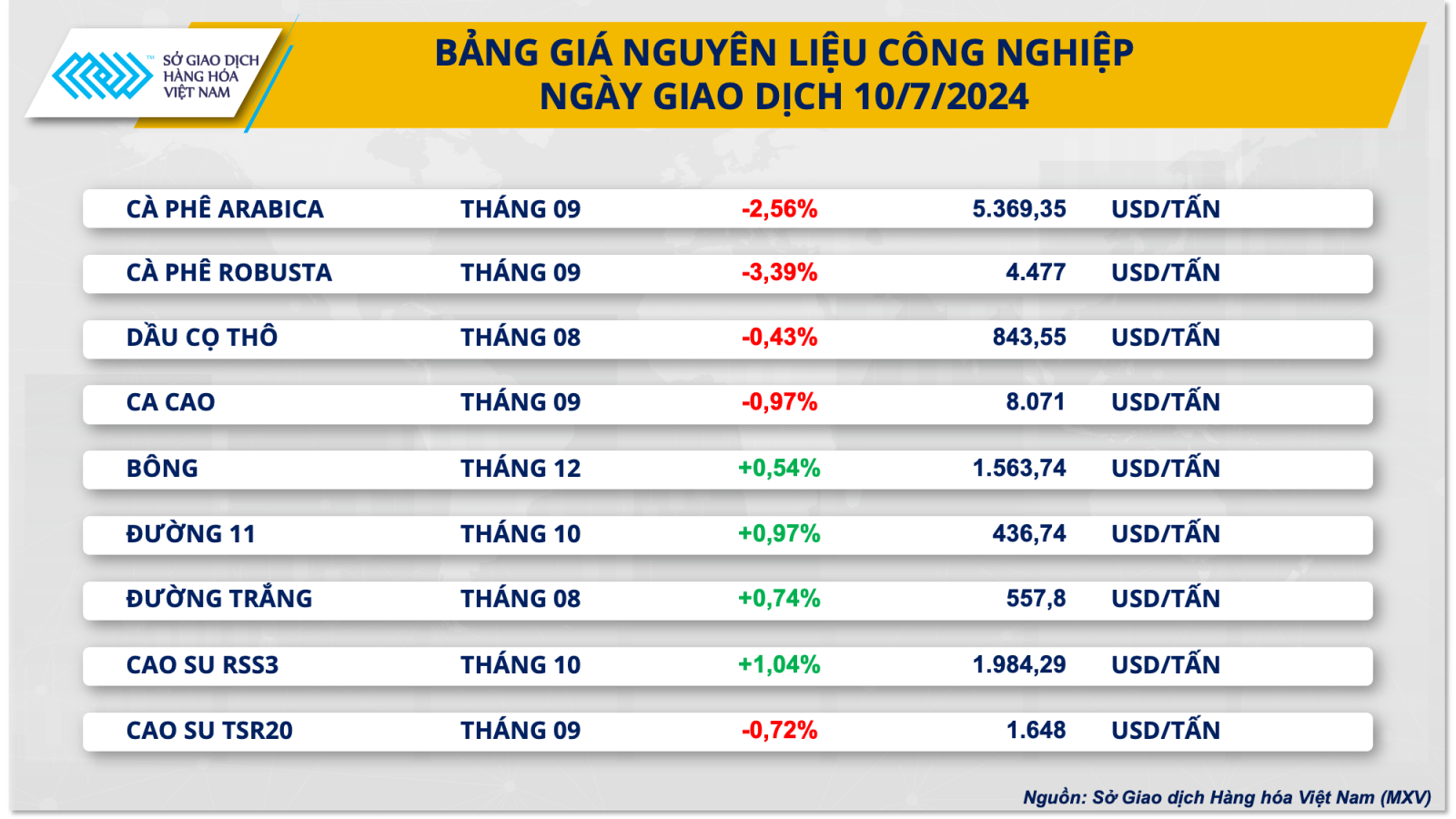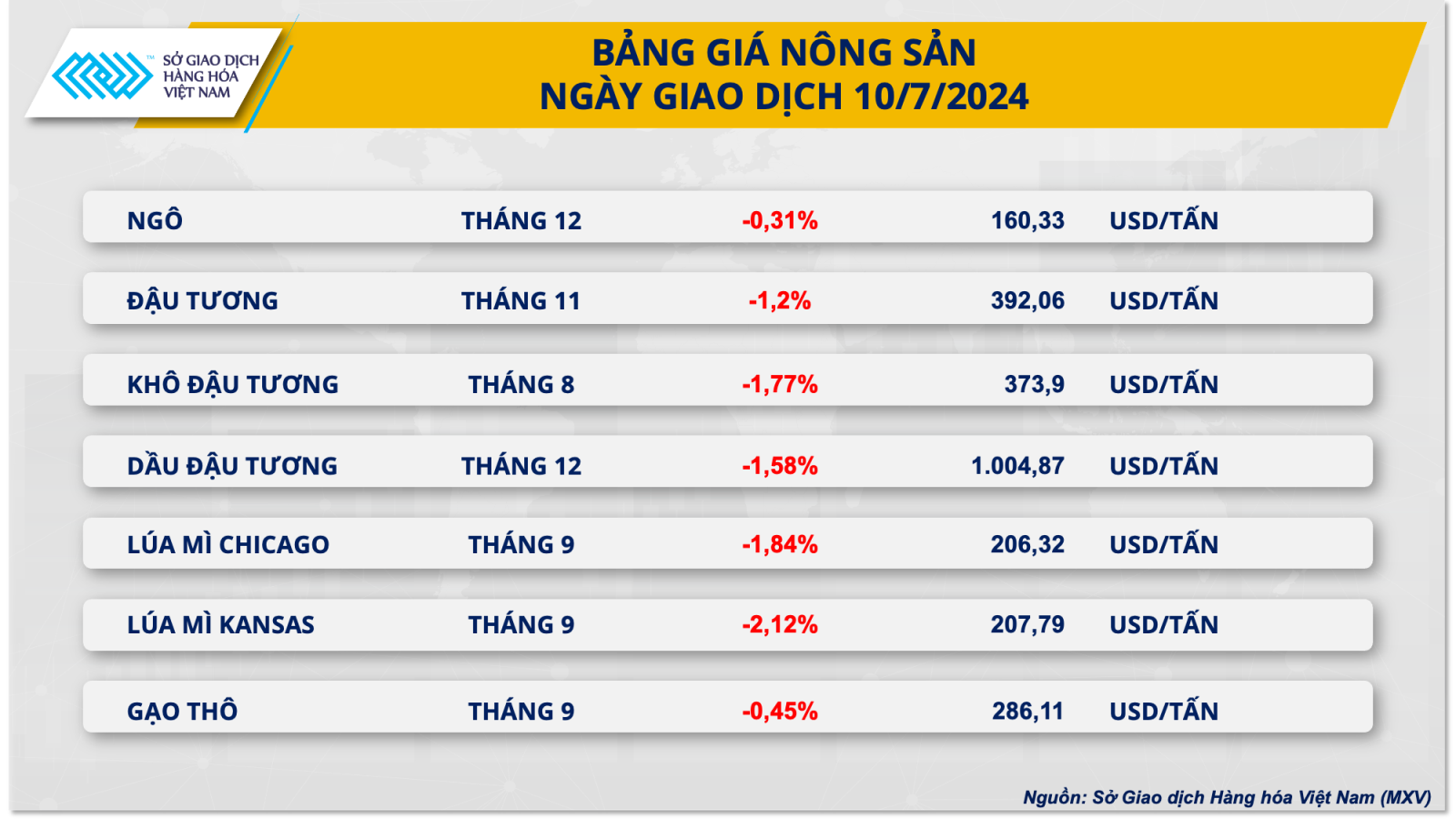Source: baotintuc.vn

After 4 hot increasing sessions, Robusta coffee price reversed and plummeted
After increasing for four consecutive sessions and surpassing the historical peak set in April, Robusta coffee prices reversed and fell nearly 3.4% in yesterday’s trading session. At the same time, Arabica coffee prices fluctuated strongly but still ended the session down 2.56% compared to the reference.

Besides technical pressure, the boom in exports from major producing countries has put pressure on the market.
According to data from the Brazilian government, the country exported 203,278 tons of coffee beans in June 2024, up 47% compared to the same period last year. Along with that, Colombia’s coffee production in the first 6 months of the year increased by 16% to 5.82 million bags, while exports increased by 15% compared to the same period last year, to 5.74 million bags.
In addition, the positive progress of the coffee harvest in Brazil also shows the prospect of adding new crop supply to the market. According to Safras & Mercado, as of July 5, Brazilian farmers had reached 58% of the area covered, higher than the 52% at the same time last year and the 54% average for this period due to dry weather conditions.
In other developments on the industrial raw material price list, cocoa prices also reversed and fell 0.79%, as the market worried about falling demand in the second quarter in Europe and Asia due to record high prices. The market expects ground cocoa production in Europe to fall 2% year-on-year, to a four-year low. Along with that, ground cocoa production in Asia and North America is also expected to decline in the report next week.
Many agricultural products are under pressure to sell as soon as trading opens.
At the close of yesterday’s trading session, agricultural markets saw all commodities fall across the board. CBOT soybeans fell more than 1%, marking the third consecutive session of decline. The market remained under pressure and closed at its lowest level in nearly four years. Brazil’s higher-than-expected exports this month were a factor that fueled selling pressure in the market.

In a new report, the Brazilian Grain Exporters Association (ANEC) forecasts that the country will harvest 10.29 million tons of soybeans in July, up from the previously reported 9.5 million tons. This is lower than the 14.5 million tons recorded in June but surpasses the 9.9 million tons recorded in the same period last year. Brazil’s increased exports are expected to continue to keep the market well supplied, which is a factor that has weakened soybean prices.
Wheat prices fell nearly 2% yesterday, under selling pressure from the opening bell. Improved weather in Russia was the factor that put the market under pressure.
LSEG’s Commodity Research Centre has recently raised its forecast for Russia’s FY24/25 wheat crop to 82.9 million tonnes, up slightly from its previous estimate as the return of rains to the Urals and Siberia has improved soil moisture. This is expected to push the spring wheat yield up to 1.97 tonnes per hectare, helping to improve supplies. Weather forecasts for above-normal rainfall in Siberia for the rest of the week and wet conditions in spring wheat growing regions have weighed on the market.
In the domestic market, yesterday, the price of imported South American soybean meal at our ports tended to increase slightly. At Cai Lan port, the price of soybean meal for November and December this year fluctuated around 11,450 VND/kg. Meanwhile, at Vung Tau port, the price was lower, fluctuating around 11,300 VND/kg.
